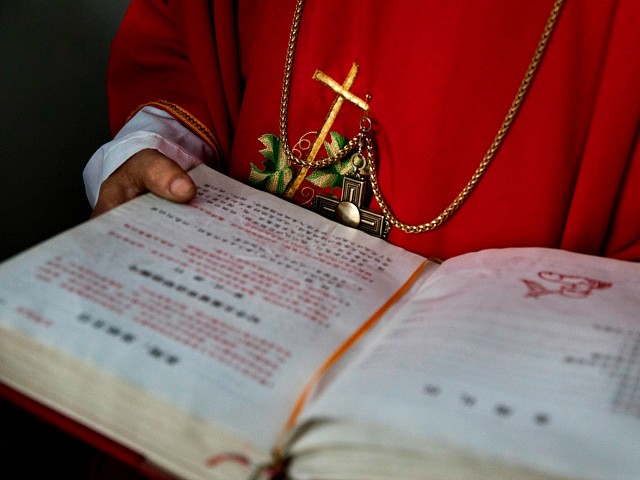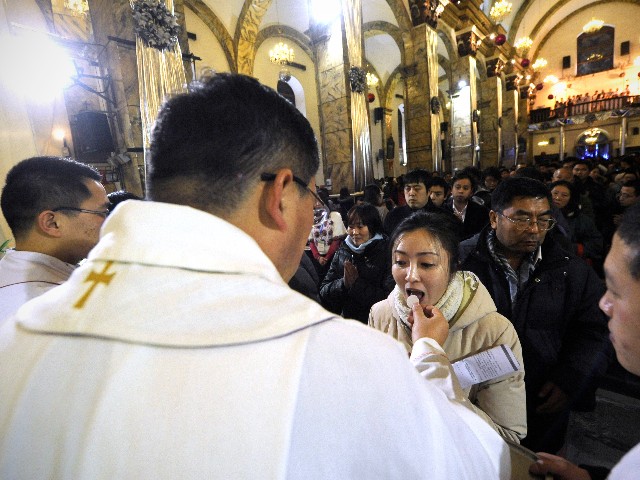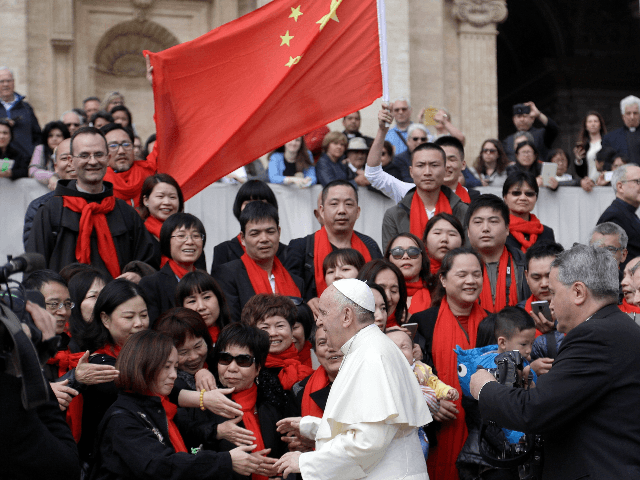ROME — The Taiwanese government praised Pope Francis’ diplomatic outreach to Beijing this week while sharply criticizing “China’s deteriorating religious freedom and human rights.”
“We support the Vatican’s efforts to improve China’s deteriorating religious freedom and human rights issues with increased exchanges, and the ultimate goal of fulfilling religious freedom in China,” said Jeff Liu, spokesman for Taiwan’s Ministry of Foreign Affairs at a news briefing Monday.
Liu lamented China’s decision not to allow any Chinese Catholic bishops to attend Pope Francis’ recent visit to Mongolia as evidence of its ongoing suppression of religion in the country, the Taipei Times reported Wednesday.
He also noted that most of the Chinese Catholics who managed to travel for the pope’s visit to Mongolia wore medical masks, and even sunglasses and scarves, in an apparent effort to keep them from being identified by the Chinese government.
“This shows that the Chinese government’s United Front Work Department is standing between the Chinese people and the pope,” Liu said, “and that the country as a whole is standing between the people and religion.”

File/A Chinese Catholic deacon holds a bible at the Palm Sunday Mass during the Easter Holy Week at an ‘underground’ or ‘unofficial’ church on April 9, 2017 near Shijiazhuang, Hebei Province, China. (Kevin Frayer/Getty Images)
Last October, the Vatican and Taiwan celebrated 80 years of diplomatic relations with a Rome gala event attended by more than 200 people, including the Secretary for Relations with States of the Holy See, Archbishop Paul Richard Gallagher, and the dean of the college of cardinals, Cardinal Giovanni Battista Re.
The Vatican is one of only 14 nations in the world with formal diplomatic ties with the Republic of China (Taiwan), since Communist China only admits relations with those who cut off ties with Taiwan. Most of the other countries recognizing Taiwan are small island nations in the Caribbean and elsewhere.
On that occasion, Taiwanese Ambassador Matthew Lee stressed the role of the Church in building up modern Taiwan, saying it has made important contributions to local society and greatly improved the quality of life of the people.
“The Church has opened schools, colleges and universities that have educated, and continue to educate, thousands of students every year, and has also established, and currently operates, twelve large hospitals and over one hundred retirement homes,” Lee said.

File/Chinese worshippers receive the Eucharist from a priest as they attend Christmas Eve mass at a Catholic church in Beijing on December 25, 2012. (WANG ZHAO/AFP via Getty Images)
For years, Pope Francis has engaged in a charm offensive with China, overlooking egregious violations of human rights and religious freedom in order to avoid bruising relations with the communist country.
In September, 2018, the Vatican signed a provisional accord with the Chinese Communist Party (CCP) on the naming of Chinese bishops, a move that triggered an avalanche of criticism, which has only been aggravated by ongoing CCP aggressions against Christians in the years after the deal was signed.

COMMENTS
Please let us know if you're having issues with commenting.